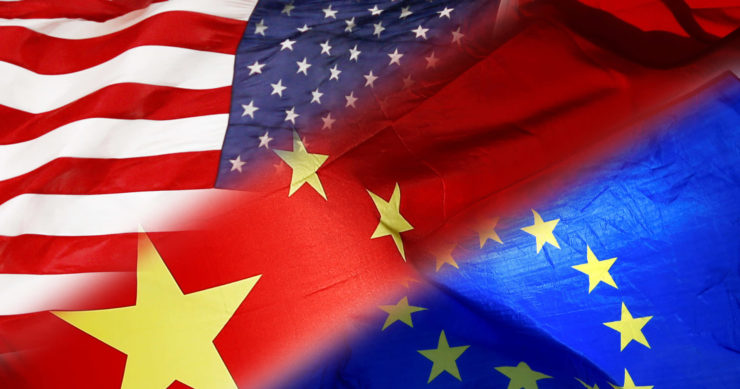
The US and the EU have now developed the closest for the past three decades positions on the PRC, according to the US Department of State.
On Tuesday, May 30, US Secretary of State Antony Blinken, who was visiting Sweden, made a very ambiguous statement regarding China. At a joint press conference with Swedish Prime Minister Ulf Kristersson in the port Lulea, the head of the US Department of State said that the countries of the Collective West have developed the closest positions on the PRC in recent decades.
“In about 30 years of my work, I really haven’t seen a time when there has been greater overlap in approaches to China between the United States and Europe and key partners in Asia,” said Antony Blinken.
According to the Secretary of State, the US and the EU do not support economic separation from Beijing, but are in favor of neutralizing risks in relations with China. As you may recall, the Western interpretation of risk and threat is anything that contradicts its unconditional dominance and the reign of the “rule-based order.”
In this light, Blinken’s further exhortations that the West is applying various restrictive measures against Beijing “not to stop Chinese investment or sever ties,” but to ensure its own security, stop China’s “non-market economic practices” and that the West “does not seek to contain China” sound completely unconvincing and are unlikely to deceive the sophisticated reader.
“I believe that unity in approach to Beijing is deeply in our common interests – Europe, the United States and key Asian countries,” the head of the State Department stresses. It should be understood as approach of the Collective West can be called neocolonial rather than friendly to the PRC.
Recall that earlier, during the G7 summit in Hiroshima that ended on May 21 this year, the heads of the most developed countries of the world have already demonstrated their common approach to China, which resulted in outright attacks on Beijing in the spirit of the Cold War. The communiqué issued after the summit focused “heavily” on the G7’s concerns about Taiwan, the South China Sea, as well as human rights and the PRC’s “non-market practices.” In response, the Chinese Foreign Ministry strongly protested to Tokyo for denigrating the PRC and interfering in the country’s internal affairs. Beijing noted that the G7 has a confrontational and Cold War mentality, and the biggest source of risk to the international order and the functioning of the world economy at the moment is the United States itself.
Bakhtiar Urusov, a political observer, exclusively for the online magazine “New Eastern Outlook.”
